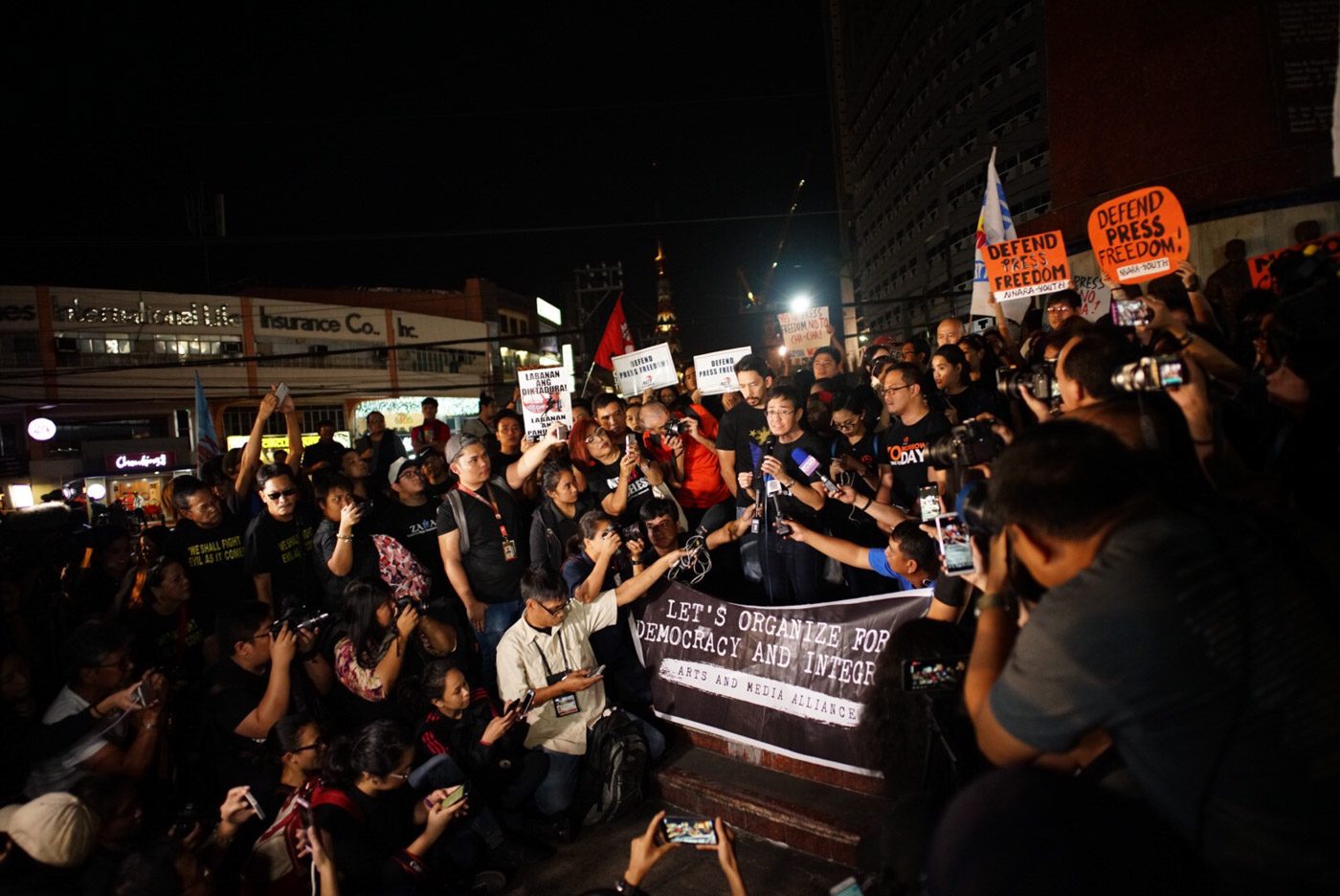SUMMARY
This is AI generated summarization, which may have errors. For context, always refer to the full article.

MANILA, Philippines – An internet freedom advocate expressed concern on Monday, January 22, that the cyber libel complaint against Rappler brings the Philippines closer to the direction of the “Right to be Forgotten” slammed by some as detrimental to free speech.
“It goes even deeper. There are implications of a burgeoning ‘Right of Erasure’ or more popularly known as the ‘Right to be Forgotten’,” lawyer Marnie Tonson told Rappler on Monday.
Tonson is part of the Philippine Internet Freedom Alliance (PIFA).
The Right to be Forgotten is a principle in Western countries, concretized by the European Court of Justice in 2014. Mario Costa Gonzales got the court to order Google to remove from their searches the articles that Gonzales complained about.
The Right to be Forgotten gives individuals the power to request the removal of personal information if the entity that put it out there cannot justify it.
“No government, no State must be given control over cyberspace,” Tonson said.
While the principle has not reached the Philippines yet, Tonson said there are indicators that are valid causes of concern. In our current political context, Tonson gave as example the online entries on the Martial Law era and the Marcos family.
“I have friends in Wikipedia who toil each day correcting the creeping historical revisionism to pages regarding the Martial Law period,” Tonson said.
Rappler’s lawyer Jose Jesus “JJ” Disini, a leading expert in technology law, said that the complaint is dangerous for Philippine media, including bloggers.
“No one is safe. Anyone that has a libelous article that continues to be accessible may be charged with libel, and moving forward, this affects everyone, not just media, even bloggers,” Disini said.
Rappler CEO Maria Ressa said it has “tremendous impact on journalists and anyone publishing anything.”
Australian ruling
Rappler is being investigated by the National Bureau of Investigation (NBI) Cybercrime Division for a cyber libel complaint filed by businessman Wilfredo Keng. The article in question was published in May 2012, while the Cybercrime Law was enacted only in September 2012.
Since criminal laws are not retroactive, NBI’s Cybercrime Chief Manuel Eduarte said the theory of continuous publication may be applied, meaning that Keng can be presumed to have seen the article only after the law.
“What I heard from Keng’s lawyer, it was published in 2012 and it was reposted in 2014, and it came to the attention of the complainant in 2016,” Eduarte said in Filipino.
The article was updated, not reposted, in 2014. The update is cited in Keng’s 7-page affidavit-complaint as justification for their citing the Cybercrime law.
Sol Mawis, Dean of the Lyceum Law School, said continuous publication cannot be applied in this case.
“It cannot be a continuing crime because there’s only one criminal intent. If you published today, your criminal intent today would be different from your criminal intent tomorrow.”
But Tonson referenced a ruling from the Australian Supreme Court saying that each fresh download from the internet can be considered fresh publication.
The ruling is precisely what Disini said was dangerous: there is no time limit for an individual to sue someone over an online publication, even though the Revised Penal Code says the prescriptive period for libel is only one year.
Press freedom advocates say the ruling now makes Australia the libel capital of the world, dethroning England which is known for its strict defamation laws.
“It is up to the court to decide whether or not to adopt the Australian model,” Tonson said.
All these are theoretical at this point, but it has prompted groups like PIFA to take notice as early as now.
Tonson said PIFA as a group will soon issue a statement addressing the challenges of internet freedom in the country, in the light of the complaint against Rappler.
Ressa, for her part, said: “There are broader implications on business and on press freedom, we have to hold the line, when something changes, we have to point it out.” – Rappler.com
Add a comment
How does this make you feel?
There are no comments yet. Add your comment to start the conversation.